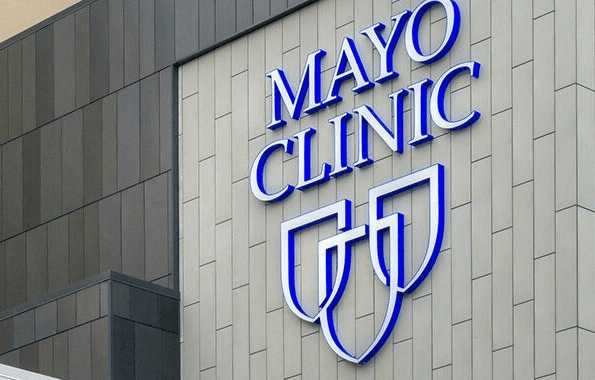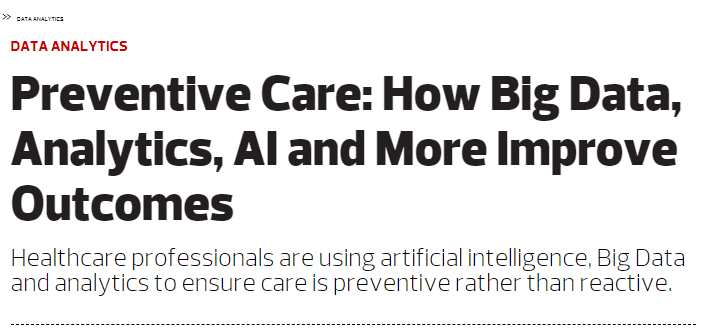The impact of AI and ‘Big Data Analytics’ extends across diagnostics, treatment, and health management, and it has the potential to revolutionize patient outcomes while reducing healthcare costs.
Here we examine how AI is redefining preventive healthcare, focusing on key areas such as patient care, health management, big data, analytics, and public-private partnerships. By providing actionable insights into these areas, we aim to inform investors and industry professionals about the potential of AI to transform longevity and healthcare.
Preventive healthcare is a critical aspect of longevity, focusing on maintaining health and preventing diseases before they occur.
AI is playing an increasingly important role in this area, from improving cancer screenings and predicting cardiovascular risks to enabling personalized treatments and improving patient engagement.
The integration of AI with big data and analytics is also helping healthcare providers optimize care, while public-private partnerships are facilitating advancements in AI-driven healthcare solutions.
The future of patient care and health management
This piece highlights three key potential benefits of AI in healthcare: improving outcomes for patients and clinical teams, lowering healthcare costs, and benefiting population health.
One area where AI is making significant strides is in preventive care. The article provides examples of how AI is being used in cancer screenings, such as mammograms and lung cancer screenings, to produce faster results. In the case of polycystic kidney disease (PKD), AI has been used to automate the process of assessing total kidney volume, which is an important indicator of future kidney function decline. AI is also being used in cardiology to identify people at risk of left ventricular dysfunction, a condition where the heart’s pumping ability is weakened, even when there are no noticeable symptoms.
AI is also playing a role in advancing medicine and public health.

Mayo Clinic
In terms of patient care, the article highlights how AI is being used to identify colon polyps, improve colonoscopy accuracy, and diagnose colorectal cancer as accurately as skilled endoscopists. AI-powered chatbots are also being used to answer healthcare questions, with some studies showing that patients prefer responses from chatbots over physicians.
Healthcare professionals can use AI and machine learning in various ways to save time and improve patient care. For example, AI can help physicians keep up with current advances, complete tedious tasks like writing clinical notes, and provide clinical context for AI algorithms. The article emphasizes that AI is intended to assist, not replace, healthcare professionals, and highlights the importance of collaboration between AI and humans in healthcare.
It concludes by discussing where AI solutions can take the healthcare industry next, highlighting the potential for AI to help create new ways to diagnose, treat, predict, prevent, and cure disease.
Read the full article here.
How Big Data, Analytics, AI and More Improve Health Outcomes
This articlet highlights how big data and health analytics are helping physicians provide preventive care rather than reactive care, and how AI is being used for predictive analytics and reporting, improving patient engagement, ensuring data quality and accuracy, and maintaining healthcare data privacy and security.
One key area where AI is being used is in predictive analytics and reporting.
AI is also being used to combine retrospective analytics with real-time reporting, and to identify patients who need automated reminders for preventive care services. AI can also help care teams query databases to identify patients at risk for certain conditions based on factors like ethnicity, gender, or family history.
AI is being used to support data quality and accuracy in preventive care, with health systems using data governance strategies and centralized data warehouses to establish a single source of truth when using multiple data sources.

Health Tech
Healthcare data privacy and security is another important area where AI is playing a role. The need for an active and consistent approach to maintaining patient privacy, and keeping data secure, is emphasised.
There is the potential for AI solutions to take the healthcare industry to the next level, with AI being used to assist healthcare professionals, develop remote health-monitoring devices, detect imperceptible conditions, and anticipate disease risk years in advance.
Read the full article here.
Will AI cure us of the need to see a doctor?
AI should complement, not replace, the judgment and autonomy of medical professionals, and highlights how AI is revolutionizing healthcare by enabling early disease diagnosis, automating administrative tasks, and promoting health and disease prevention.
Certain key issues in healthcare are ripe for AI-driven innovations, such as burnout among professionals, medical errors, inefficient data management, and escalating costs.

National News
The article provides examples of how AI-powered diagnostic tools can lead to better patient outcomes, and how AI can automate administrative tasks, allowing healthcare professionals to focus on patient care.
The importance of public-private partnerships in shaping the future of healthcare is highlighted, and emphasises the need for genuine change and a brighter future.
The primary goal of AI in healthcare is health promotion and disease prevention.
AI can analyze large amounts of data, create personalized diagnoses, and enable systems to reason and learn, resulting in automated genetic diagnoses with accuracy similar to human experts.
Read the full article here.
Final Thoughts
The integration of AI into preventive healthcare is poised to revolutionize the industry, offering significant opportunities and challenges for investors and professionals.
The three articles highlight how AI is being used to improve patient care, health management, and preventive care, and how AI-driven solutions can transform healthcare outcomes, reduce costs, and benefit population health.
AI is playing an increasingly important role in preventive healthcare, with applications ranging from cancer screenings and cardiology risk assessments to predictive analytics and patient engagement. We highlight the potential for AI to improve outcomes for both patients and clinical teams, lower healthcare costs, and benefit population health.
The role of big data and analytics in preventive healthcare is covered, with AI being used to predict the behavior of patient populations, identify patients who need preventive care services, and improve patient engagement. The integration of AI with big data and analytics is helping healthcare providers optimize care, while public-private partnerships are facilitating advancements in AI-driven healthcare solutions.
We have considered the current state and future potential of AI in healthcare, and highlight the importance of collaboration, regulation, and innovation in achieving the best outcomes for patients, healthcare professionals, and investors.
The future of AI and preventive healthcare is bright, with the potential to transform the longevity industry and revolutionize patient outcomes. The integration of AI with big data, analytics, and public-private partnerships is creating new opportunities and challenges for investors and professionals, and the need for effective regulation and collaboration is critical to achieving the best outcomes.
“The best way to predict the future is to create it.”
Peter Drucker
Top Longevity Reads
- Longevity: Insurers’ biggest growth opportunity? (Scor)
- Is Longevity The Health Revolution We So Desperately Need? (Hillary Lin, M.D.)
- Where Will Older Adults Live? (Morgan Stanley)


